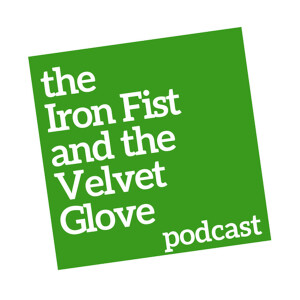

In this episode we discuss:
(00:00) 392a
(00:43) Introduction
(05:31) Welcome to Sex
(11:44) Ukraine Diversion
(16:52) PWC Awareness Poll
(22:43) Commonwealth Games Decision Poll
(29:14) Scripture Union DGR Status
(30:46) Albo Doesn't Want to Talk About Subs
(35:21) Alison's Facebook and The Voice
(43:28) The Voice and Culture
(01:06:57) Council's Welcome to Country
(01:08:06) Farewell
Chapters, images & show notes powered by vizzy.fm.
To financially support the Podcast you can make a per-episode donation via Patreon or donate through Paypal
We Livestream every Tuesday night at 7:30pm Brisbane time. Follow us on Facebook or YouTube, watch us live and join the discussion in the chat room.
You can sign up for our newsletter which is basically links to articles that Trevor has highlighted as potentially interesting and which may be discussed on the podcast. You will get 3 emails per week.
Here is the text of Trevor's thoughts on Indigenous culture.
Blacks say a lot of “we blackfellas” and “you whitefellas” in
statements that emphasize the difference between the two groups.
Sympathetic whites say “them” and “us” and defer to
indigenous claims of being special.
Both of these groups from The Left encourage the idea that Indigenous
people are inherently different to white people.
The truth is that any inherited biological differences are trivial.
The real differences are cultural.
To use a computing analogy. We have the same hardware (DNA).
Some of us use a different operating system (culture).
The discourse around The Voice fails to contemplate that the
operating system of culture is changeable and can be upgraded. Culture is seen
as more legitimate if it is pure and uncontaminated by modern influences. In
Indigenous circles it is given an almost sacred quality beyond rational criticism.
To suggest purposeful cultural change is to commit cultural blasphemy.
The Left has failed by refusing to acknowledge the
ideological cultural choices that many indigenous people make. Before speaking
about choice, I’ll make a couple of concessions, namely:
1.
An obviously black man does not have a choice
when racially discriminated against in a shop or a police station. While race
is a myth, racism isn’t.
2.
An indigenous person who has grown up in a strict
indigenous culture is not unlike a member of a cult or strict religious
community in the sense that they have been indoctrinated into accepting a
certain way of life. They don’t have much choice either.
But … there are a significant number of indigenous people
who have been exposed to alternative cultures and ideologies who could decide
to curate their cultural values.
For these people, identifying as indigenous and adopting indigenous
culture and values is an ideological choice.
There is nothing wrong with that, but all ideologies are
open to criticism. No ideology is sacred.
The ideas, norms and practices that some indigenous people
choose to adopt are up for debate.
Remember Margaret Thatcher? We can’t criticise her for an
inherent characteristic like being a woman, but we can criticise her
neo-liberal ideology. It’s the same thing.
I see urban elite indigenous leaders like Archbishops. Of
course, there are exceptions, but some broad sweeping generalisations are as
follows:
·
They want special privileges for their group by
virtue of holding a certain ideology.
·
They think their members are better than
non-members. Like original sin, white fellas have inherited the guilt of their
ancestors. Black fellas have inherited the noble spirituality of their
ancestors.
·
They believe all of their members are persecuted
and they rarely acknowledge class differences within their community.
·
It is their job to accentuate differences with
outsiders.
·
It is their job to maintain traditional dogma
and values. They are conservative to change as change could threaten their
privileged positions. If cultural change is obviously needed, they will be the
last to accept it. Change leads to assimilation and loss of group identity.
·
They purport to speak for their members, but
their lived experience is often completely foreign to the most downtrodden
members of their group.
·
They speak of the common good, but their effect
is to divide our society.
Of course, many indigenous people are suffering. Of course,
we should help them. But maybe, just maybe, instead of blindly encouraging
indigenous culture and identity we should encourage a critique of that
ideology.
Maybe parts of that ideology are to blame for some of the
mess? Maybe humbugging and communal ownership should be dropped from the ideology.
It’s just culture. It’s supposed to change and evolve. Maybe living in remote
areas as a nomadic hunter gatherer made sense 250 years ago but maybe times
have changed and living a sedentary lifestyle, in a remote area, with few employment
prospects, and a social welfare system is not a good combination of
circumstances.
Maybe it is those circumstances and not racism which are
causing indigenous suffering. Maybe the current version of Indigenous culture is
locking people into a hopeless situation? Maybe that culture needs an
adjustment? But that would be blasphemy!
Many rationalists consider it their duty to confront religious
zealots and debate the pros and cons of the religious belief or at least to
debate the ethics of the special privileges they claim by virtue of their
ideology. But on indigenous issues, many rationalists have allowed empathy to overtake
critical thinking. It is possible to sympathise with downtrodden indigenous
people and at the same time, disagree with the solutions demanded by their leaders
who are blinkered by a sacred devotion to cultural dogma.
Proponents argue that The Voice is just another source of information
to help decision makers. How can it be harmful to share more opinions? I have
two reasons.
Firstly, a problem with The Voice is that it is tied to a commitment
to create an advisory group with a racist membership requirement. Past racist policies
do not justify creating new racist policies. The voices of indigenous people
can be heard (and arguably already are) within the spirit of a colourblind
egalitarian community. The benefit of hearing from another group of special
representatives from the victim community is outweighed by the disadvantage of
perpetuating racial division.
It’s a bit like the Indigenous NRL All Star team. Selection is
based on race. The benefit of a good football game is outweighed by reinforcing
racial differences. Can you imagine in the USA, the NBA or the NFL organising a
blacks Vs whites game? It would be howled down as a terrible idea and Martin
Luther King quotes would flood the social networks. Like private school
funding, we do things differently down here, but I digress.
Secondly, indigenous advocates and their white supporters have
been unwilling to critique and modify indigenous culture. The Voice won’t
change that. It will perpetuate the problem. Members of the Voice will view
every problem through the lens of maintaining traditional culture. They will be
precisely the wrong people to give advice.
Next week, Argument 2 – Historical suffering - Inherited land
rights, inherited grievance and inherited guilt.
The week after, - Contemporary Suffering - it should be
about class.
More Episodes
All Episodes>>You may also like
Create Your Podcast In Minutes
- Full-featured podcast site
- Unlimited storage and bandwidth
- Comprehensive podcast stats
- Distribute to Apple Podcasts, Spotify, and more
- Make money with your podcast



